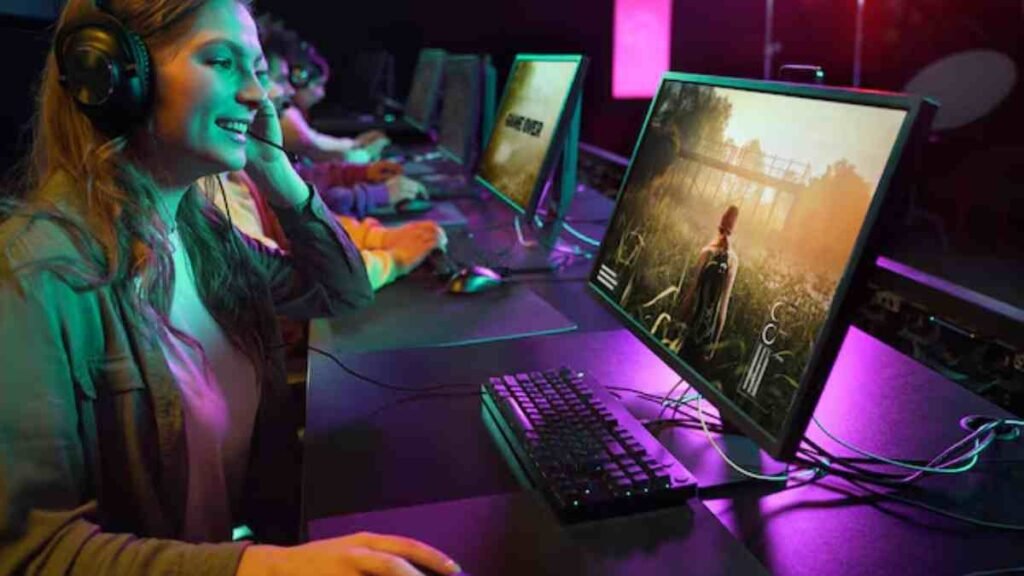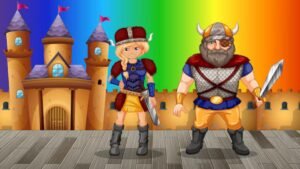https Gamemakerblog: Unlocking the Secrets to Game Development Success

https gamemakerblog
https Gamemakerblog! The phrase, “Game Development is itself a great adventure filled with art, science, and endless creativity,” adequately describes the situation. The thrill involved makes it appealing to many people and for most of them, it is more than a job — it is a hobby that keeps them awake at night working or thinking of better game designs. So whether it is recreating an indie classic or planning to work in a big studio, there are things about game development that cannot be ignored.
As the genre of gaming is constantly expanding at an unprecedented rate, it is understandable that keeping up with things in such an active environment can be quite a challenge. Learning how to create a detailed project, employ appropriate programming techniques, and make use of Rabids like game engines—there is more to do about it. But, do not worry! This guide will release the locks of why it is that easy to develop a game without distorting the fun side of the game. So, get your controller into your hands (or the keyboard) and let’s begin our journey into the world of imagination and code.
https Gamemakerblog: The Importance of Planning and Research in Game Development
Planning and research are the main core principles involved in the development of any game. Otherwise, even the brightest ideas can get stifled in a cast of immovable factors.
First of all, knowing your audience is imperative so who is going to play your game? What are their interest areas? Insights help design choices by carrying out some survey or feedback with the audience.
Then proceed to the level where you will have to detail the major elements of your game and the story behind it. It is advisable to prepare an action plan in order to avoid wasting time and resources, since everyone will be focusing on particular goals. This helps minimize scope creep making sure that there is no depletion of assets on non-essential components.
Engaging in some sort of scouting for the market is also important. Finding out what one is competing with assists in finding the holes within the industry. Dissecting how certain approaches succeed and how other approaches flounder can give a person a road map to victory.
You shouldn’t shy away from the prototyping stage as early as first stages. It helps in identifying concepts that work and provides opportunities for problems that will be experienced during design so that correcting can be done during early development as opposed to later stages after resources have been expended.
https Gamemakerblog: Understanding the Basics: Game Engines and Programming Languages
The game engine is the foundation in game development. It provides developers a tool with a lot of things and constructive way to help create. Some game-engine such as Unity and Unreal Engine has many good features such as Graphics giving graphics, physics for molding the world and sounds.
The importance of programming languages in the realization of game concepts cannot be overstated. C# is often seen in conjunction with Unity where it is preferred for its simple syntax and C++ is used to construct games in Unreal Engine. Programming languages directly affect game’s quality and its possibilities for future extensions.
Therefore, these technologies are necessary for the developers of the future. Understanding how they work together will improve your programming and designing skills. Every engine is significantly different in order to meet different requirements of the project.
Trying different engines and languages allows you understand which one works better as per your plans. Seek for caches of the tutorials or refer to the online communities where the developers share their previous experience in working with these important instruments.
Essential Skills for Game Developers
Game development is a field that has numerous angles and hence requires diverse skills sets.
Programming knowledge is fundamental. It is such languages as C#, C++, and Python, that enable developers to implement their design ideas. Game mechanics can be improved immensely because of the knowledge of data structures and algorithms.
Artistic skills are also a must-have. Be it in character design or environmental design, being able to employ design principles ensures margin for improvement to the game. Knowing how to use Photoshop or Blender for instance accomplishes the goal of designing the required components effectively.
Creative skills are inherent. Game development comes with bugs and technical challenges that require baked creativity in solving such issues fast.
Teamwork is also respected. Projects are mostly carried out in teams and clear comprehension reduces the need for intensive brainstorming when allocating the roles.
Knowledge of user experience will help yourself as a creator in the assurance that players will be able to fully immerse themselves with the creation, hence more desirable games will be made.
Tips for Unlocking Creativity in Game Design
Game design always has a pool of creativity, but often it is dormant, waiting for something to trigger it. The trigger could be brainstorming. Assemble everyone in your team and let their fantasy run wild without passing slanderous remarks. It is always astonishing what quality of output comes from mere conjectural chatter.
An additional and useful strategy is to engage in other genres and other games not limited to one’s own interests. This can expose him to new mechanics or ways of narrating that he might not have thought about.
Limitations should also be welcomed as they more often than not, are the mother of innovation. Introduce limits as to the time, money or even other resources, give yourself some leeway to come up with something unexpected.
Try other forms of storytelling and other forms of visuals too. Very often looking at things with a different set of eyes can produce new gameplay.
These include movie, book or even nature based sources of inspiration. Varied influences in the creation process will allow rendering of the same concept in various ways appealing to players.
Marketing and Monetization Strategies for Game Developers
The marketing of your game is as important as the game development itself. Social networks are splendid opportunities to promote the game in front of the potential audiences. So make a nice contribution which will demonstrate the peculiarities of your game and post some concepts made in advance.
Also you can think about influencer marketing. Working with streamers can generate legitimate exposure which helps in reaching out to their ready-made audience.
Try different monetization strategies such as freemium model or in-game purchase of the game. Such attempts give players the opportunity to play the game and also sell them an additional feature which is more than what they get on playing the free game.
Also try to build community around your game via forums or Discord servers. Active followers can easily become your game’s advocates and tell everyone about the title without you helping them do it.
Moreover, do not forget to always waste no time and keep your eyes on the analytics to see what kind of players are there and how you should formulate your strategies. Adapting to changes will help the marketing activities to be more suitable in this ever-changing industry.
Common Challenges and How to Overcome Them
Game development is not all easy as it has a couple of challenges that are always expected. One of them is the effective use of time. And this is because developers often underestimate the time that some tasks will take, which at times leads to some burnout.
Scope creeping is another problem. It is very easy to crush out ideas and features and in the doing so end up making the project more than it was intended. It is important to conceptualize each given time in order to avoid such situations.
Technical challenges are not out of the blue, so to speak, as they can also be anticipated. Bugs and glitches may hinder progress, hence, it’s important to appropriately structure a quality assurance stage within the plan.
So it is when it comes to cooperation, which has its scope of difficulties too. Team friction due to misunderstandings and errors can slow progress down. Constant communication helps in establishing better comprehension of the collective goals, and teams as well.
It takes patience to blend imagination with limitation. Constraints can be pretty constraining, however, if one steps over them positively, creativity is ignited. Looking at such problems in a positive manner gets rid of the constraints in game making and facilitates development growth.
The Future of Game Development
The present and future of game development is of endless promise. The likes of Virtual Reality as well as Augmented reality are stretching the limits. It is an age where developers are able to build fantasy worlds that have more or less eclipsed real life.
Moreover, Artificial intelligence is still on the upward spiral in its growth. It makes the players’ experiences better because the players’ challenges are tailored for them. One might argue that narratives that are generated by AI may be modified to accommodate the decisions made by a player, thus, every player’s path through this story is going to be different.
Lastly, the dynamics in the gaming industry brought about by cloud gaming are also evolving. High end gaming computers are no longer a prerequisite for a gamer looking forward to engaging in heavy titles on video game – it is possible to play them owing to powerful server sites.
The concepts of powerful models of “Indie” game development will develop, thanks to the emerging trends of unified publishing platforms. This transition promotes creativity within genres and across their borders in terms of narrative.
As we picture these future times, working together will be necessary. Through collaborations across various fields industries someictures which will justify the definition of entertainment will caught to existence. Great times welcome both the makers and winers of the games.
Conclusion:
The process of making games can be defined as interesting because there is love in making a game. As you pin your thoughts in this core, and try to function within that sensibility, you have to let it be.
Think of what made you create games in the first place. Ordinarily, the urge to create rich worlds and curious plots can be quite stimulating. Each of you holds such precious insight that can reach out to gamers from whichever sphere of the world.
This zeal should be evident in every single line of the code written and every single pixel placed. View problems as growth factors which are useful instead of looking at them as hindrances. Excitement is one of the main drivers of creativity.
Continue researching different technologies and concepts but remain loyal to the core values that make you love gaming. Such fields require lots of imagination so do not constrain your vision.
Not only do you make great games since you are able to tap into a source of passion, but you also inspire a great community where those who have ventured into it share the same joy that brought you here in the first place.
FAQs: https Gamemakerblog
What are the best game engines for beginners?
For those just starting out, Unity and Unreal Engine are popular choices. They offer user-friendly interfaces along with extensive resources and community support.
Do I need to know how to code to develop a game?
While coding knowledge is beneficial, many tools allow you to create games without extensive programming skills. Visual scripting options like Scratcher or GameMaker Studio provide alternatives for non-coders.
How long does it take to develop a video game?
The timeline varies widely based on complexity. Simple games might take a few months, while larger projects could span years. Planning helps set realistic expectations.
Can indie developers make money in today’s market?
Absolutely! Many indie titles find success through creative marketing strategies and unique gameplay experiences. Crowdfunding platforms also provide financial opportunities for new projects.
What resources can help me improve my game development skills?
Online courses, forums, and tutorials are excellent resources. Websites like Udemy or Coursera offer structured lessons tailored for all skill levels.







